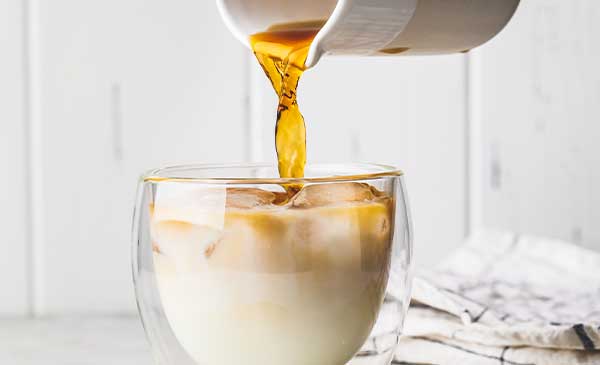Best Tea for Upset Stomach

Nothing ruins a day like an upset stomach. An upset stomach can be caused by various factors, such as:
1. Consuming contaminated food or water can lead to an upset stomach.
2. Eating large portions or consuming food too quickly can put a strain on the digestive system.
3. Eating too quickly, or consuming fatty or spicy foods can cause Indigestion. The stomach struggles to break down food properly causing an upset stomach.
4. Consuming alcohol in excess can inflame the stomach lining. Prolonged use of nonsteroidal anti-inflammatory drugs (NSAIDs) can do the same thing.
5. A viral or bacterial infection such as the stomach flu can result in symptoms like nausea, vomiting, and diarrhea.
6. Emotional stress and anxiety can affect the digestive system and lead to an upset stomach. The gut-brain connection plays a significant role in how stress impacts digestion.
7. Consuming food that your body is intolerant to such as lactose or gluten. Consuming these foods can cause digestive discomfort and an upset stomach.
Whether it's caused by something we ate or just a general feeling of discomfort, an upset stomach can really put a damper on our mood. Luckily, there is a simple and natural remedy that can help soothe our troubled tummies - tea. But not just any tea, the best tea for a stomach ache.
What is the best tea for nausea?
If you are feeling nauseous, one of the top contenders for this is ginger tea. Known for its powerful anti-inflammatory properties, ginger root has been used for centuries to calm stomach discomfort. Sipping on a warm cup of ginger tea can help reduce inflammation in your stomach and relieve the nausea. Plus, the spicy and refreshing taste of ginger adds a pleasant kick to your tea-drinking experience.
Another fantastic option is peppermint tea. Peppermint has been used for generations to soothe digestive issues, including stomachaches, nausea, and diarrhea. It has natural antispasmodic properties that can help relax the muscles of the gastrointestinal tract, reducing cramping and discomfort.
Peppermint tea also has a refreshing taste and aroma, which can help to alleviate feelings of nausea. Remember to steep the tea for about 5-10 minutes to extract the maximum benefits.
If you're looking for a more floral and gentle option, chamomile tea is the way to go. Chamomile has also been used for hundreds of years as a natural remedy for digestive issues. Its calming properties can help relax the muscles of the stomach and reduce inflammation, making it an excellent choice for soothing an upset stomach. The mild and slightly sweet taste of chamomile tea is also incredibly comforting, helping to ease both your physical and mental discomfort.
Lastly, if you're feeling adventurous, you can try tea with fennel. Fennel seeds have long been used as a digestive aid, thanks to their carminative properties. Carminatives help relieve gas and bloating, which are common symptoms of an upset stomach. By brewing a cup of fennel tea, you can help alleviate these uncomfortable symptoms and promote better digestion.
No matter which tea you choose, it's important to remember that everyone's body is different. What works for one person may not work for another. It's always a good idea to listen to your body and see how it reacts to different teas. If you find that one tea doesn't provide the relief you're looking for, don't be discouraged. Give one of the other options a try.
So, the next time you find yourself with an upset stomach, reach for a comforting cup of tea. It may just help ease your discomfort, and provide a soothing and natural remedy for your digestive woes.
--
It's important to identify the underlying cause of an upset stomach to determine the appropriate treatment or remedies. If you frequently experience digestive issues, it's advisable to consult with a healthcare professional for a proper diagnosis and personalized advice.






